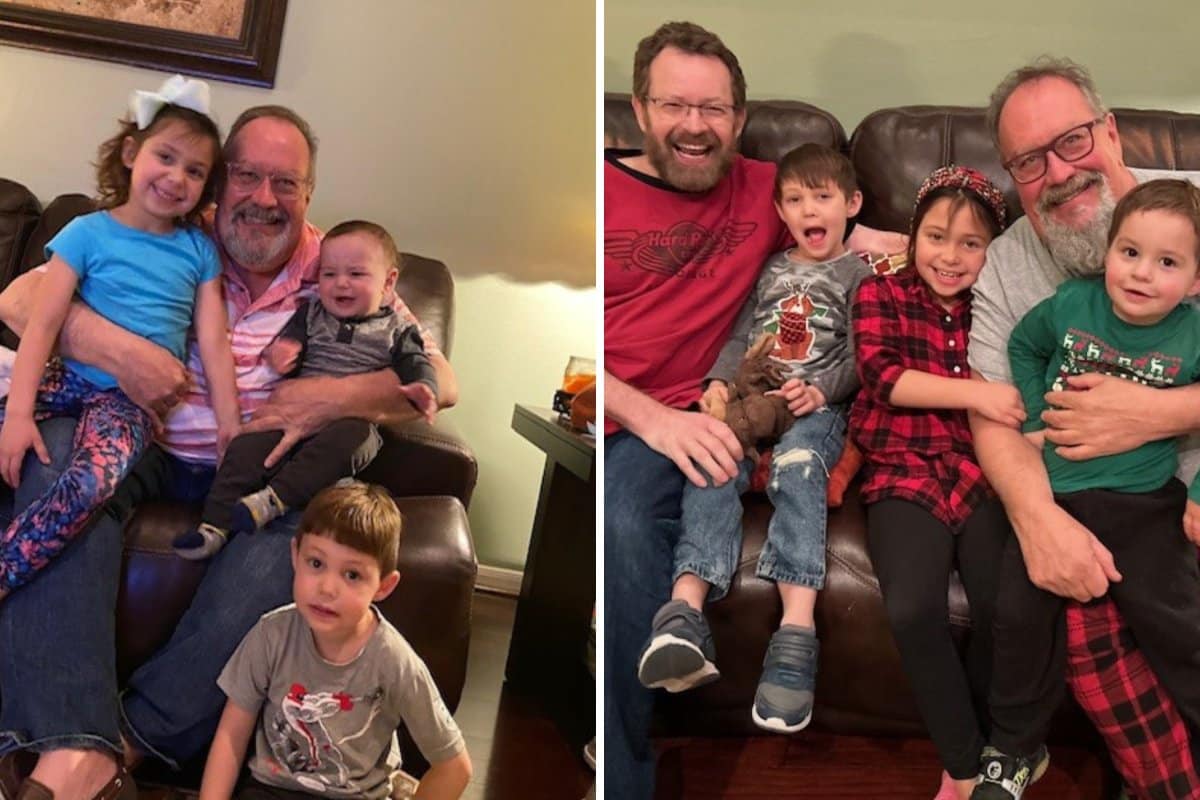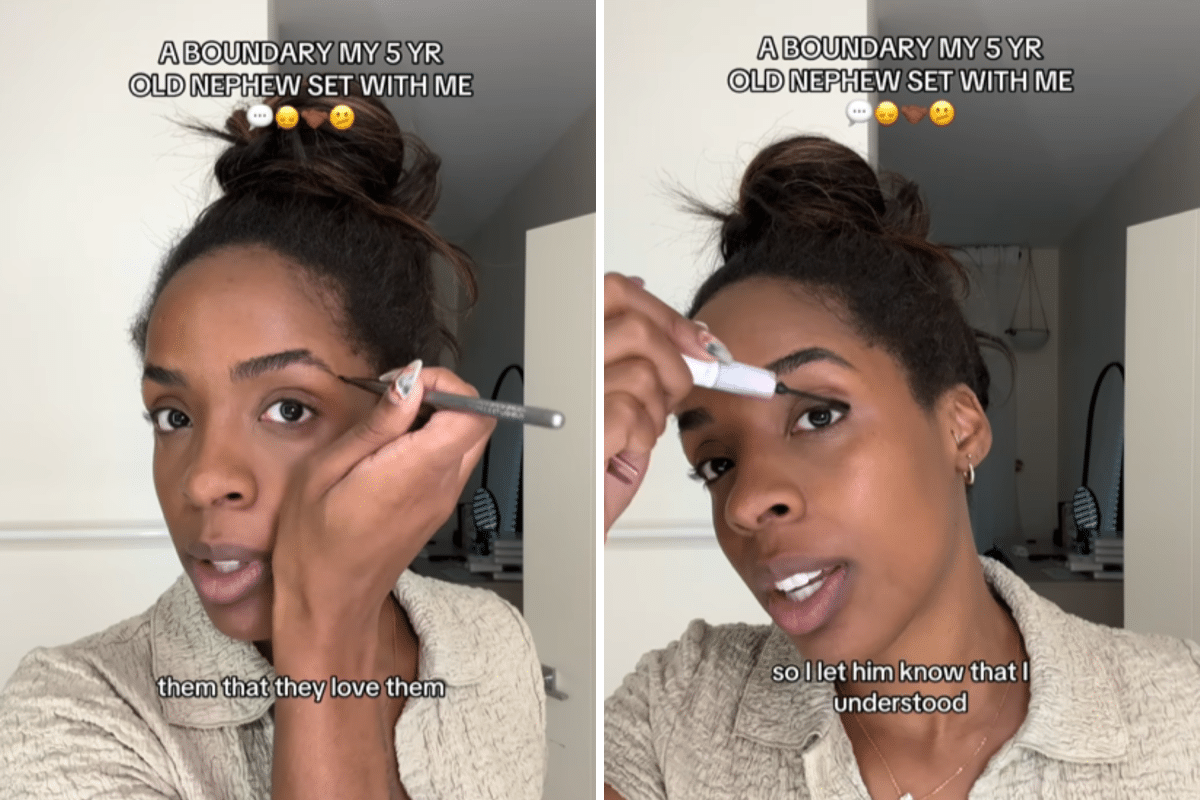I grew up in a strictly religious family in Oklahoma, in the middle of Muscogee—Creek—Nation. From very early on, I felt different from others around me. I was more interested in boys and had crushes on boys. But as the only son among four kids, I felt pressure to behave and present myself in the ways that the conservative families around me expected boys to.
The only time I remember feeling free from those limits in my childhood was on Halloween when I said I was going as my sister. For one night, I got to behave outside of those norms.
Despite remaining closeted, I was bullied throughout my teen years for seeming different. I was called many of the hateful names inflicted on gay youth.
During college, I began to have relationships with fellow young gay men, which we always kept secret. But I was convinced that it was wrong, sinful, and something I shouldn’t be doing. Even as I began to feel moments of happiness in these relationships, I also grew to hate myself even more.
When I attempted suicide, I informed members of my family’s church, which was part of the Church of Christ. I explained that I had taken an overdose of pills. I told them why, sharing my secret. They informed my parents, who came to the hospital. I survived, and it turned out, fortunately, that the overdose I had taken was not enough to kill me. Though my parents knew my secret from that point on, they never once talked to me about it. I found out later that they shared my secret with other people though.
After college, I moved to Texas and, for the first time, found a gay community. A strip of gay bars in Dallas was like a lifeline. But the self-loathing didn’t end. I made the decision that I would date a woman. Before long, I was married. We went on to have two daughters.
For years, I kept this part of myself hidden. I denied it to myself, insisting it had been a temporary phase. But by the time I reached my 40s, I was miserable. We were living in Houston at that point, and I tried typical steps for a “mid-life crisis.” I got an elaborate tattoo, bought a new truck, worked out, and lost a lot of weight. But none of that was effective.

Steve Bailey pictured with his grandchildren (L). Steve and his husband, Thom, pictured at Christmas with Steve’s grandchildren (R).
Steve Bailey
Finally, my wife and I had to acknowledge the proverbial elephant in the room. She knew and I knew, we just hadn’t talked about it. She asked if I’d be willing to try “conversion therapy,” and I agreed to.
Scientists say this “therapy” is dangerous and destructive. Kentucky recently became the latest state to ban it for minors, with Governor Andy Beshear saying it “has no basis in medicine or science, and it has been shown to increase rates of suicide and depression.” A study found conversion therapy is also economically destructive, costing the United States more than $9 billion a year.
All it did for me was make me suicidal again. I began sleeping with a shotgun in my hand, thinking that if trauma and self-hatred overtook my brain and I couldn’t bear to live anymore, I’d end it.
But seeing how miserable I was making everyone else around me, especially my wife and daughters, I knew I had to do something else. It was time to accept myself. So I came out.
Breaking up our marriage was painful, and to this day I appreciate and respect my ex-wife. My daughters were shocked but old enough to understand and soon came to accept me.
I was also afraid of the impact that coming out might have on my career. I work in oil and gas as a specialist in royalties. It’s a largely conservative industry. I didn’t know whether I’d be accepted.
But I was inspired by John Browne, former head of BP, who came out and wrote about his experience in a memoir. He then went on to write The Glass Closet, which explains that coming out is good for business. He’s right. Keeping your truth a secret takes work and energy and damages relationships. Being authentic lifts a weight off your shoulders, allowing you to perform your best.
I scheduled a meeting with the head of accounting at my company, a woman I respected and trusted. “I’m gay and I’m no longer going to hide it,” I told her. To my surprise, she immediately stood up, walked over to me, and gave me a big hug. “I’ve got your back,” she told me.
And she did. I found myself generally accepted and supported at work. From that day, I never looked back. I felt joy and fervor at work and did better than ever, which led to a promotion and raise. Years later, I took retirement and started a second career as a consultant, working with an amazing woman who always encourages me to be authentic and never hide. In fact, I’ve found that many organizations seek out my counsel because they find me unique and memorable.
I fell in love with a wonderful man from Dallas. We got married in Vegas, and then quickly traveled to Oklahoma for the birth of my first grandchild. Everyone gets along.
Each year on October 11, millions of Americans like me celebrate National Coming Out Day. It’s a time for LGBTQ+ people to show pride and demonstrate that we don’t need to hide our true selves. As President Biden said, “Today and every day, I want every member of the LGBTQ+ community to know that you are loved and accepted just the way you are—regardless of whether or not you’ve come out.”
Taking place on the anniversary of the 1987 March on Washington for Lesbian and Gay Rights, this day is a sign of how far we’ve come as a community, and a reminder of all the work for equality that still lies before us.
But for me and many others, it’s also a time to reflect back on my own difficult journeys. I did not come out, accepting and publicly acknowledging that I am a gay man, until I was 48. And to get there, I had to survive years of hatred—by others and myself.
While I have no clinical degree or training in psychology, I am living proof of the benefits of coming out. I have learned to really see myself, respect my abilities, and love who I am. These are crucial ingredients to embracing a successful and fulfilling life.
Steve Bailey is Vice President and COO of Savvy Oil & Gas Consulting.
All views expressed are the author’s own.
Do you have a unique experience or personal story to share? See our Reader Submissions Guide and then email the My Turn team at myturn@newsweek.com.










